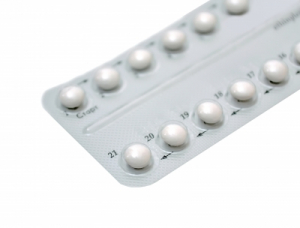Contraception (or Birth Control) and Family Planning is very important knowledge to plan your family. Traditionally people have been using traditional methods of contraception using knowledge of days of ovulation and avoiding sexual intercourse around the fertile period.
There are many methods of contraception available today. Each individual can select the best method of contraceptive based on convenience, duration of protection and requirement.
Barrier Methods
 Barrier methods like male and female condoms are the simplest of contraception methods and when worn correctly it can provide protection against pregnancy and Sexually Transmitted Infections. While the Male condom is popular with public, the female condom is less popular. It is recommended to use one condom for only one intercourse. Male Condoms are available in many types and are easily accessible from Pharmacies and selected Supermarkets.
Barrier methods like male and female condoms are the simplest of contraception methods and when worn correctly it can provide protection against pregnancy and Sexually Transmitted Infections. While the Male condom is popular with public, the female condom is less popular. It is recommended to use one condom for only one intercourse. Male Condoms are available in many types and are easily accessible from Pharmacies and selected Supermarkets.
Oral Contraceptive Pills
 Hormonal contraception for females came to being in the nineteen fifties. Combined oral contraceptive (called combined because they contain the two hormones named oestrogen and progesterone) method or the pill is the safest available if taken carefully according to the advice issued with the pill. But some women are sensitive to oestrogenic or progestogenic side effects (effects due to oestrogen and progesterone) such as nausea, vomiting, bloating, weight gain, mood changes. One has to try these pills and see whether she would tolerate it. In addition forgetting or missing taking the tablets according to schedule reduces the effectiveness of the pills. It is advisable to consult a gynaecologist before selecting the pill especially for females with heart conditions. There are new generations of pills with fewer side effects.
Hormonal contraception for females came to being in the nineteen fifties. Combined oral contraceptive (called combined because they contain the two hormones named oestrogen and progesterone) method or the pill is the safest available if taken carefully according to the advice issued with the pill. But some women are sensitive to oestrogenic or progestogenic side effects (effects due to oestrogen and progesterone) such as nausea, vomiting, bloating, weight gain, mood changes. One has to try these pills and see whether she would tolerate it. In addition forgetting or missing taking the tablets according to schedule reduces the effectiveness of the pills. It is advisable to consult a gynaecologist before selecting the pill especially for females with heart conditions. There are new generations of pills with fewer side effects.
The combined oral contraceptive pill tends to reduce lactation and is not recommended for these women. Progesterone only pill or injection is suitable for women who are feeding their babies.
Progesterone only injection known as Depo-Provera has been popular in Sri Lanka in planning the family. The injections need to be taken every 3 months. Weight gain and stopping of periods temporally are recognized side effects of this method.
Implants and Intrauterine Devices
 Implants containing Progesterone is also available for women. These implaImplants and Intrauterine Devicesnts are surgically placed under the skin with local anaesthesia. Depending on the brand one insertion can provide contraception for up to 5 years. It is important to consult your Doctor in selecting the implant.
Implants containing Progesterone is also available for women. These implaImplants and Intrauterine Devicesnts are surgically placed under the skin with local anaesthesia. Depending on the brand one insertion can provide contraception for up to 5 years. It is important to consult your Doctor in selecting the implant.
Copper containing intrauterine contraceptive device(IUCD) can be inserted to women after childbirth and can be kept for 10 years. This is a contraceptive method is available in the Sri Lankan Government Health Care Sector.Progesterone containing intrauterine contraceptive device is also available but it is costly.
Emergency Contraceptive Pill
Emergency contraception is recommended in the sudden event of intercourse without contraceptives or accidental rupture of condoms. It is important to note that this is only for emergency situations and that it should not be made a regular method of protection. It is important to opt for other planned methods as Emergency Contraceptive Pills have increased concentration of hormones.
There are several methods of emergency contraception. One of the most popular and easy to use method is use of pills containing a substance called levonorgestral. This substance is available in Sri Lanka today. If the woman is breast feeding the advice of the family doctor needs to be taken before using these tablets. If one has any doubt or unable to find a suitable method of emergency contraception the family doctor/general practitioner should be consulted.
Permanent Methods
Male (Vasectomy) and Female Sterilization via surgery is an option when the ideal Family Size is achieved. Vasectomy for Males and Ligation and Resection of Tubes for Females(LRT) are the Clinical Terms for Sterilization. Sterilization for females is undertaken in the Government Health Care Sector only for females with Families with 2 or more children above the age of 5 years.
There is a wide range of contraceptives available in Sri Lanka. It is always advisable to consult a General Practitioner or a Family Planning Advisor before the selection of any of the more long term contraceptive methods.


